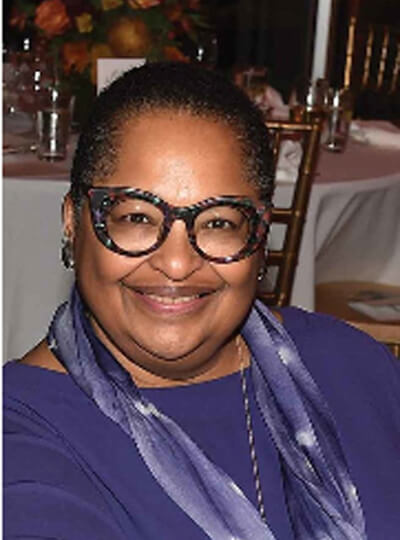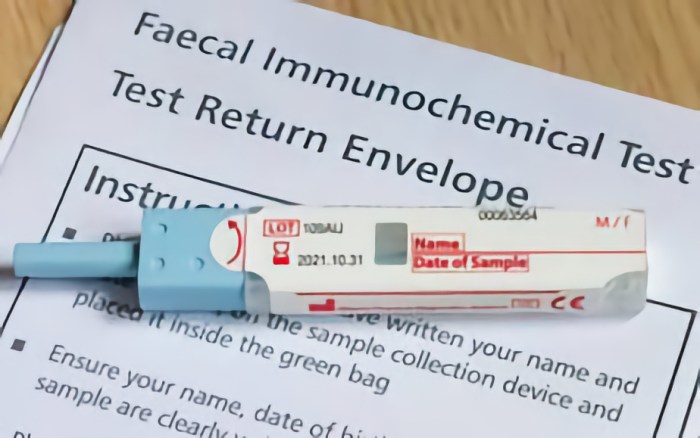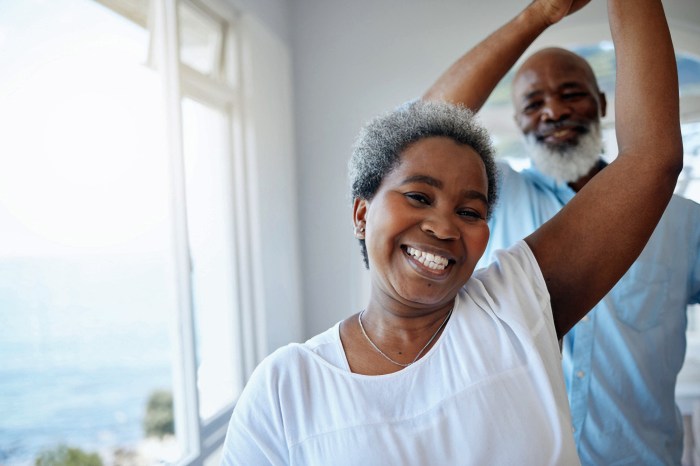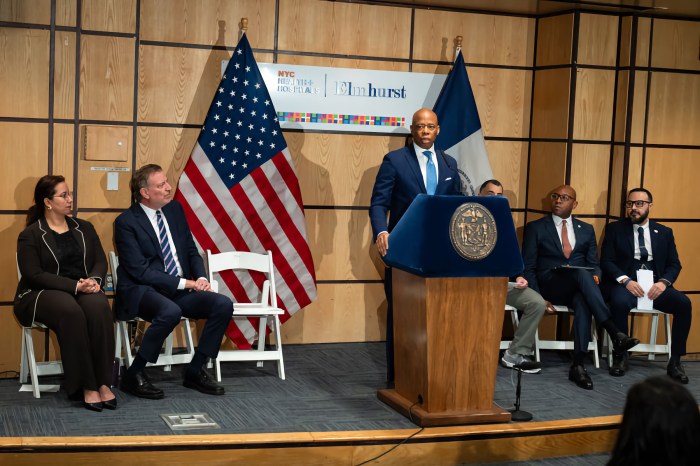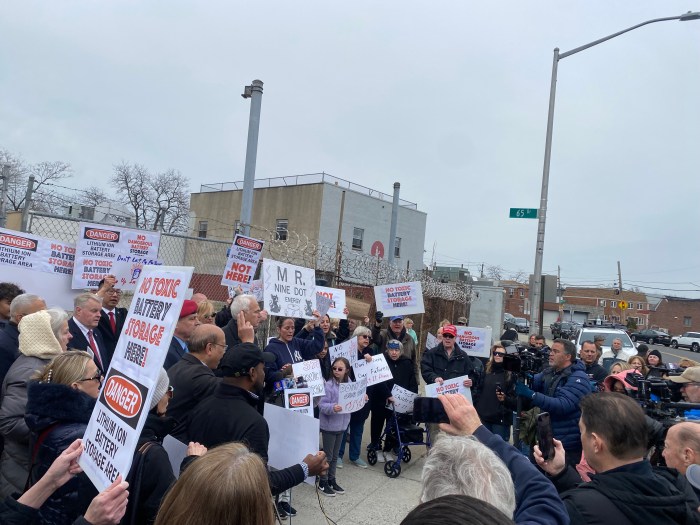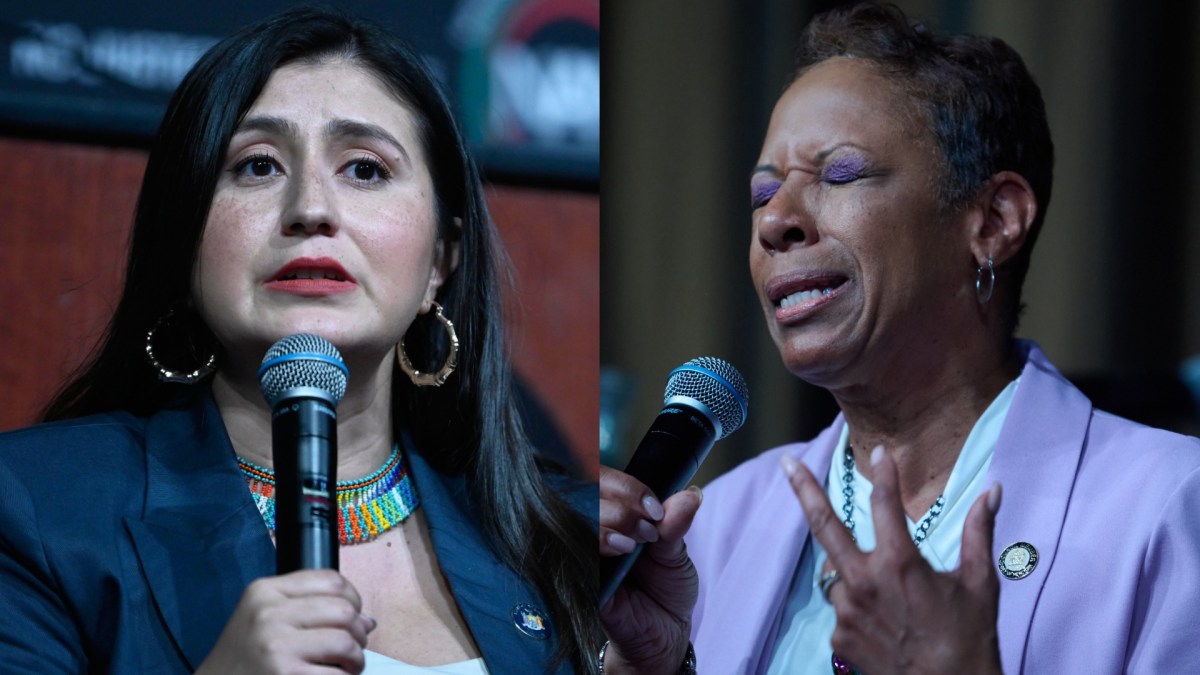Despite ongoing protests over the consolidation of Kingsbrook Jewish Medical Center in the epicenter of the Caribbean community in Brooklyn into the One Brooklyn Health System, Inc., the chief executive officer (CEO) said she remains “very mission-driven.”
LaRay Brown — who was appointed, in July 2017, as CEO of the system, serving Central and Northeast Brooklyn, and comprising 12 ambulatory care centers, three hospitals, two nursing homes, an assisted living and independent living facility, a transitional housing program, an urgent care center and a retail pharmacy — told Caribbean Life, in an exclusive interview, that she is determined in ensuring individuals in all communities have access to public health.
“I spent my entire career in public health, human services,” said Brown, who was instrumental in the founding of One Brooklyn Health System, Inc. and bringing together the three diverse boards — Brookdale Hospital Medical Center, Interfaith Medical Center and Kingsbrook Jewish Medical Center — to create One Brooklyn Health System, Inc. and establish a new governance structure that would accommodate the combination of these three health systems.
As CEO of One Brooklyn Health System, Inc., Brown said she is now responsible for the clinical and administrative integration of three health systems and the implementation of a $664 million capital program funded pursuant to the New York State Health Care Facility Transformation Program: Kings County.
She said her goals and objectives are “to strengthen access to healthcare in Central Brooklyn and to increase ambulatory services.
“We want to restructure what we deliver and where we deliver it,” said Brown, who also currently serves as the president and CEO of Interfaith Medical Center, a position to which she was appointed in February 2016. “Healthcare is facing an affordable crisis. Our goal is to take a step back and not to compete with ourselves.
“We must evolve Kingsbrook as a regional center, and we want to work as a system, so we can spend our dollars wisely,” she added. “We have a structural gap of more than $300 million. We have been a beneficiary of New York State to close that gap, and our mandate is to close that gap.
“Most of our patients are with Medicaid, and Medicaid does not fully reimburse,” the CEO continued. “One Brooklyn is to make sure we continue to be a viable system. We have very few pork and fat, but there have to be opportunities to consolidate.
“We want to reduce how much we spend on outside entities,” Brown said. “There are some opportunities in which we can reduce our expenses, but there’s not a lot of fat.”
She said One Brooklyn Health System, Inc. is also ensuring that it can consolidate leadership and administration in having, as examples, one chair for cardiology, dental services, etc.
“In some instances, people retire, and you don’t fill those positions,” said Brown, adding, however, that some workers have been transferred to other hospitals in the network in view of the consolidation process.
“This is very complicated, but it’s a strong commitment we have,” she said, disclosing that, contrary to some reports, the Emergency Department at Kingsbrook Jewish Medical Center is not being closed.
“There are folks like nurses, emergency care technicians — we work through the union to work with Brookdale and Interfaith,” Brown pointed out. “You have opportunities to go into those positions. If you’re a nurse, you have more than ample opportunities to go to Brookdale or Interfaith.
“The Emergency Department at Kingsbrook will remain open for now,” she re-emphasized. “If you need to be admitted at Kingsbrook, you will be admitted to Brookdale or Interfaith.
“All have Admitting Departments; they will continue to have Admitting Departments,” Brown added. “But there will be a need for an Admitting Department. We’re not having lay-offs; let me be clear of that. We’re working with the unions. We really have a shortage of nurses. There will be no lay-off of 1199 (union) workers.
“Late fall/early winter 2020, there were individuals identified of retirement, and they were given the opportunity to take advantage of the retirement package,” she continued.
On March 11, dozens of workers at Kingsbrook Jewish Medical Center in East Flatbush, along with community members, patients, clergy and public health activists, rallied outside the medical center against what they claimed was the impending closure of the hospital.
On May 22, a group calling itself Kingsbrook Community Action said it was working with another group, Rise and Resist, in holding a “vigil and speak-out”, along with elected officials, on Eastern Parkway and Utica Avenue in Brooklyn.
Kingsbrook Community Action claimed that “One Brooklyn Health recently announced to the staff that they are planning to fully close the hospital by July 1.
“Our actions have likely slowed down their plan to close Kingsbrook’s inpatient unit during the pandemic, although we’ve already lost some units,” said the group in a statement “The pandemic should have taught our state officials that the trend of eliminating safety net hospital beds must be reversed.”
Kingsbrook Community Action Committee and Rise and Resist said on May 20 that Kingsbrook Jewish Medical Center, the previous week, had “the 4th highest percentage Intensive Care Unit occupancy in NYC.
“But One Brooklyn Health now says it aims to end Kingsbrook in-patient care before Jul. 1, 2021,” said the groups in a joint statement. “Previously, during the pandemic and under pressure from concerned staff and community members of the Kingsbrook Community Action Committee, Gov. Cuomo’s plan to fully close Kingsbrook’s in-patient beds had been repeatedly halted.
“Yet OBH (One Brooklyn Health) has already undermined care with countless cuts,” they added. “Surgical and brain injury units have closed. In April, OBH shut the geriatric psych (psychiatric) unit, putting dementia patients in general psych, despite promises to keep it. Still, many East Flatbush residents don’t know of the plan to close.”
Kingsbrook Community Action Committee and Rise and Resist, therefore, warned that “deadly health inequities will worsen, if OBH completes its planned closure of 200+ beds at Kingsbrook.
“Brooklyn already has a hospital bed shortage,” they said. “While Manhattan has six hospital beds per 1, 000 residents, Brooklyn has only two per 1, 000 residents – below the US average.”
Kingsbrook Community Action Committee and Rise and Resist said Kingsbrook Jewish Medical Center is “crucial in its working class, largely Black (85 percent) and immigrant (48 percent) Brooklyn community.”
Hard hit by COVID-19, the groups claimed that Kingsbrook Jewish Medical Center was “swamped for months and remains very busy.”
“To protect Brooklyn, Kingsbrook’s closing must be stopped,” the groups urged. “Cuomo and NY (New York) legislators need to protect safety-net hospitals. We urge a moratorium on NY hospital closings and capacity cuts till (until) NY’s post-pandemic needs can be re-evaluated.”
But, Brown – who, prior to becoming CEO of Interfaith Medical Center and One Brooklyn Health System, Inc, and who enjoyed a 28-year career with the largest municipal healthcare system in the nation; her last positions being that of Senior Vice President for Corporate Planning, Community Health and Intergovernmental Relations and Corporate Officer at the New York City Health and Hospitals (H&H) — said that while “everyone has a right to protest and have disagreements, one of our mandates is to strengthen access to hospital services.
“We’re investing in healthcare; we’re facing an affordability crisis,” said Brown, a past chairperson of the National Association of Public Hospitals and Health Systems (now America’s Essential Hospitals), and who served as a member of Cuomo’s health care transition and Medicaid Redesign teams. “We have to help ourselves by implementing the transitional goals.”
She disclosed that more than $135 million of capital funding will be invested on the Kingsbrook campus and that One Brooklyn Health System, Inc. plans to close medical/surgical beds on the Kingsbrook campus by end-June.
“We’re going to start architectural work in June,” Brown said. “We have two phases of construction for the Medical Village (on the Kingsbrook campus).
“They have the right to protest,” she added about the protesters, “but I have an operation that has a (structural) gap.”


